Inclusivity at the Delhi Pride March makes disabled queers prouder
Volunteers of the Pride March introduced interpreters for the first time in 2019. This year, disabled queer people joined the march in greater numbers
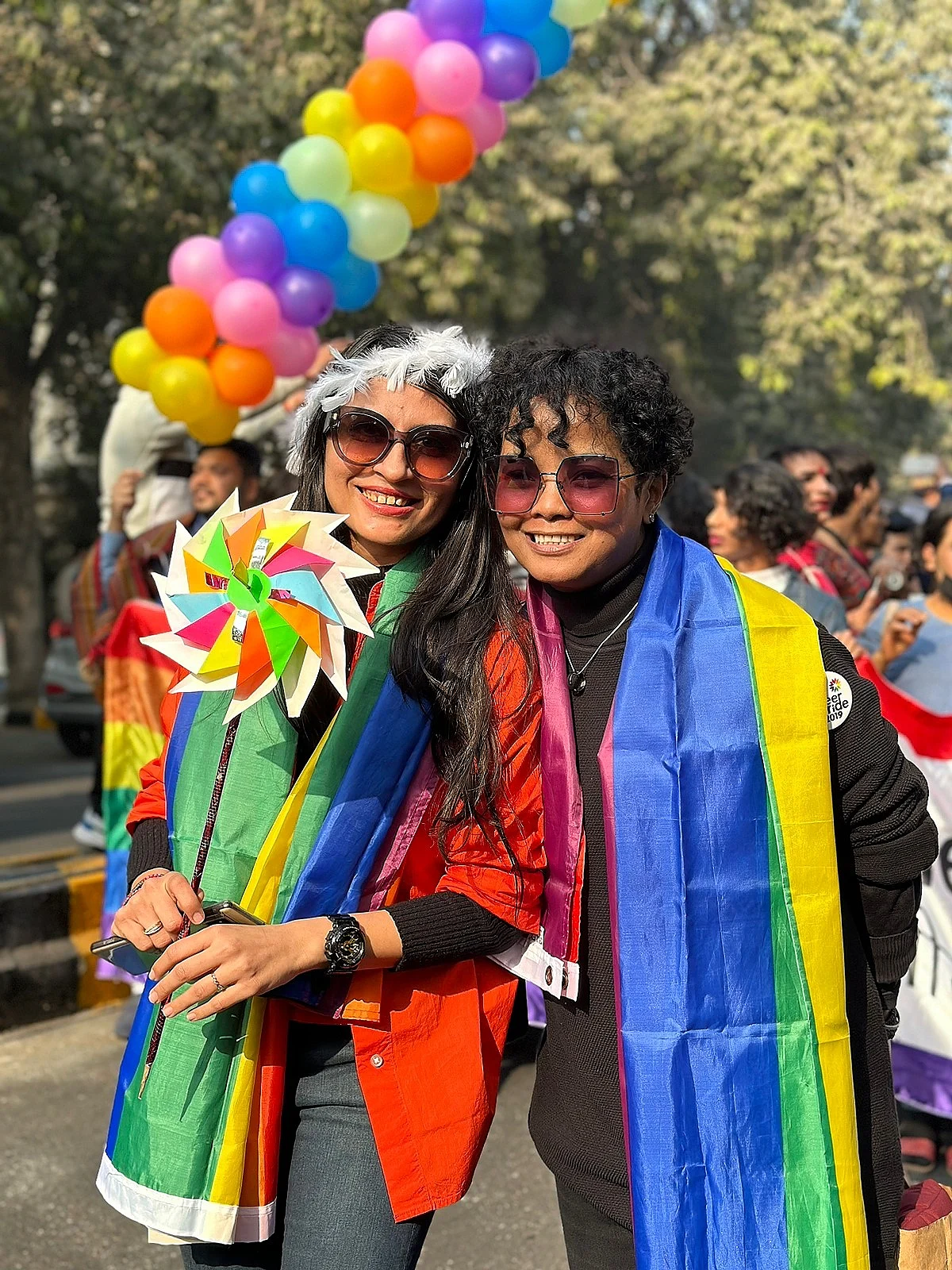
After years of hesitance, Byong Agarwal decided to participate in a Pride March for the first time after he saw social media posts that said sign language interpreters had been arranged to make the march “accessible and inclusive” for the disabled queer community.
The parade took place in Delhi for the first time in 2008. But Agarwal, born with hearing disability, has been reluctant to join in the past owing to his inability to understand what was being said or communicate his own feelings in the absence of interpreters.
Volunteers of the Pride March introduced interpreters for the first time in 2019. Subsequently, the march was called off for three consecutive years because of the pandemic. This year, disabled queer people joined the march in greater numbers.
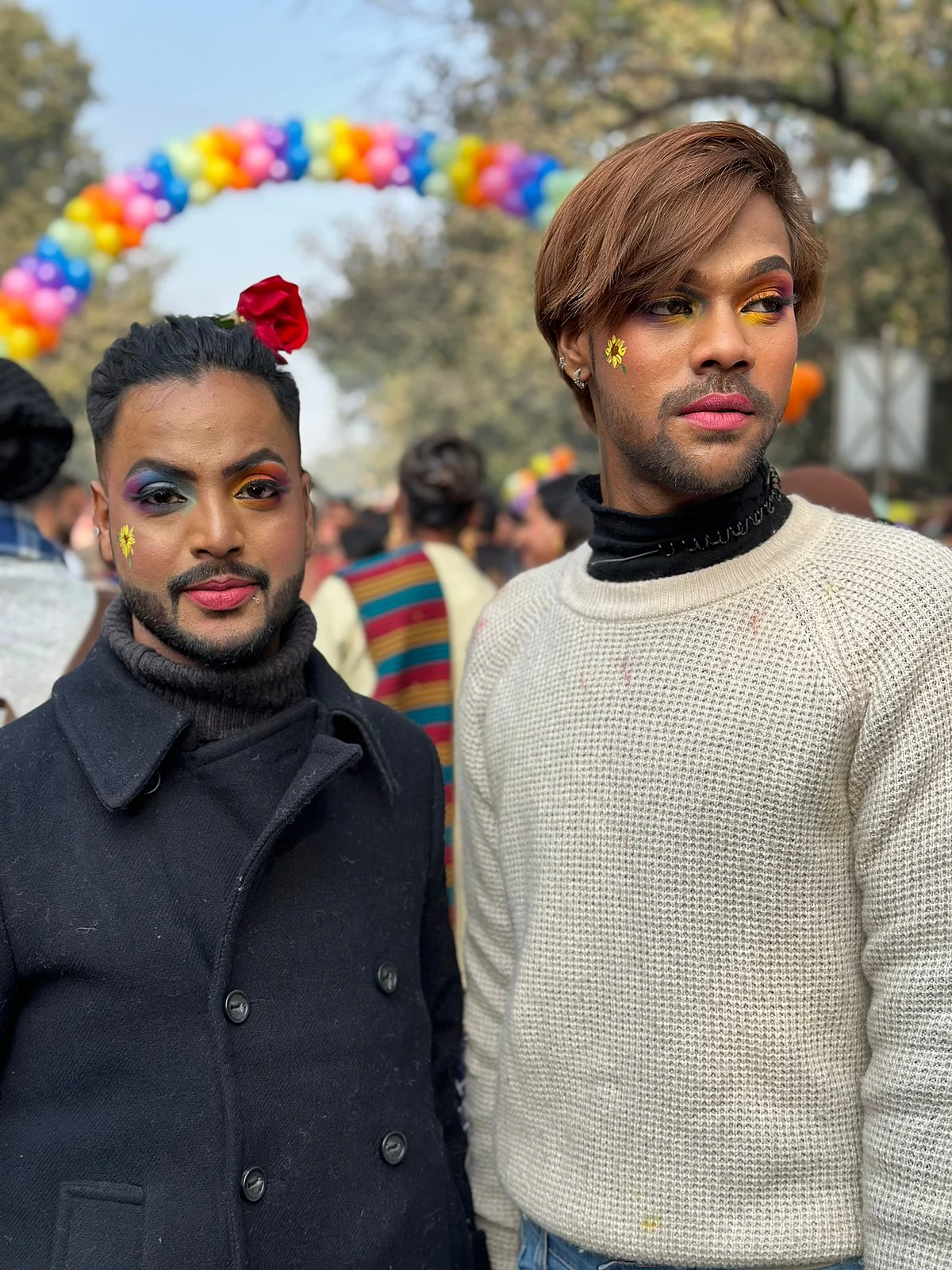
On the wintry afternoon of January 8, 26-year-old Agarwal, who identifies as bisexual, marched for the first time surrounded by members of the broader queer community, and was able to understand what was happening.
As the parade reverberated with the beats of dhols, for Agarwal, there was complete silence but a rush of unity. “I couldn’t hear what they were saying but I enjoyed looking at their happy faces, and with the help of an interpreter, I was finally able to understand what was being said,” said Agarwal in sign language, translated by one of the interpreters. “I came here to support the community and to help other deaf people who are queer but are facing discrimination."
Since early Sunday afternoon, participants gathered near the Barakhamba metro station in central Delhi and soon marched towards Jantar Mantar. They brightened the roads with colourful banners, rainbow-painted faces and imaginative placards advocating freedom for sexual minorities.
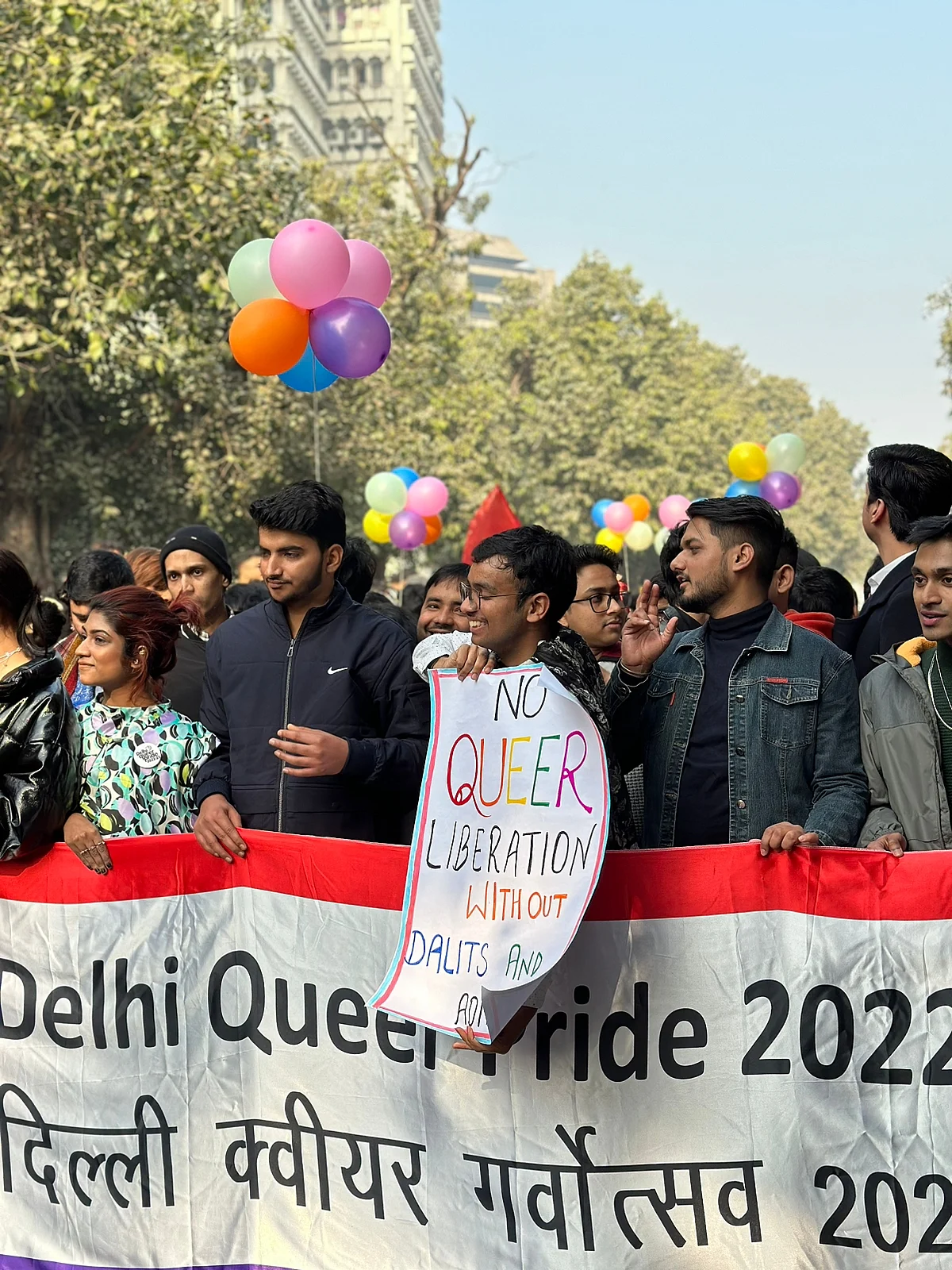
On reaching the main stage in Jantar Mantar, the final stop of the march, an interpreter stood on stage, talking to the disabled community. Covered with a pride flag, Agarwal stood in front of the huge stage with a group of disabled people; all of them talking to each other.
When I asked Agarwal what this inclusion meant for him, with a shy smile he replied, “freedom”.
Growing up with the struggles of understanding and accepting his gender identity, Agarwal was unable to talk to his family. The limitations of societal rigidity were further compounded by his disability. “Being deaf already came with its challenges, I couldn’t tell them how confused I was about my gender,” he said.
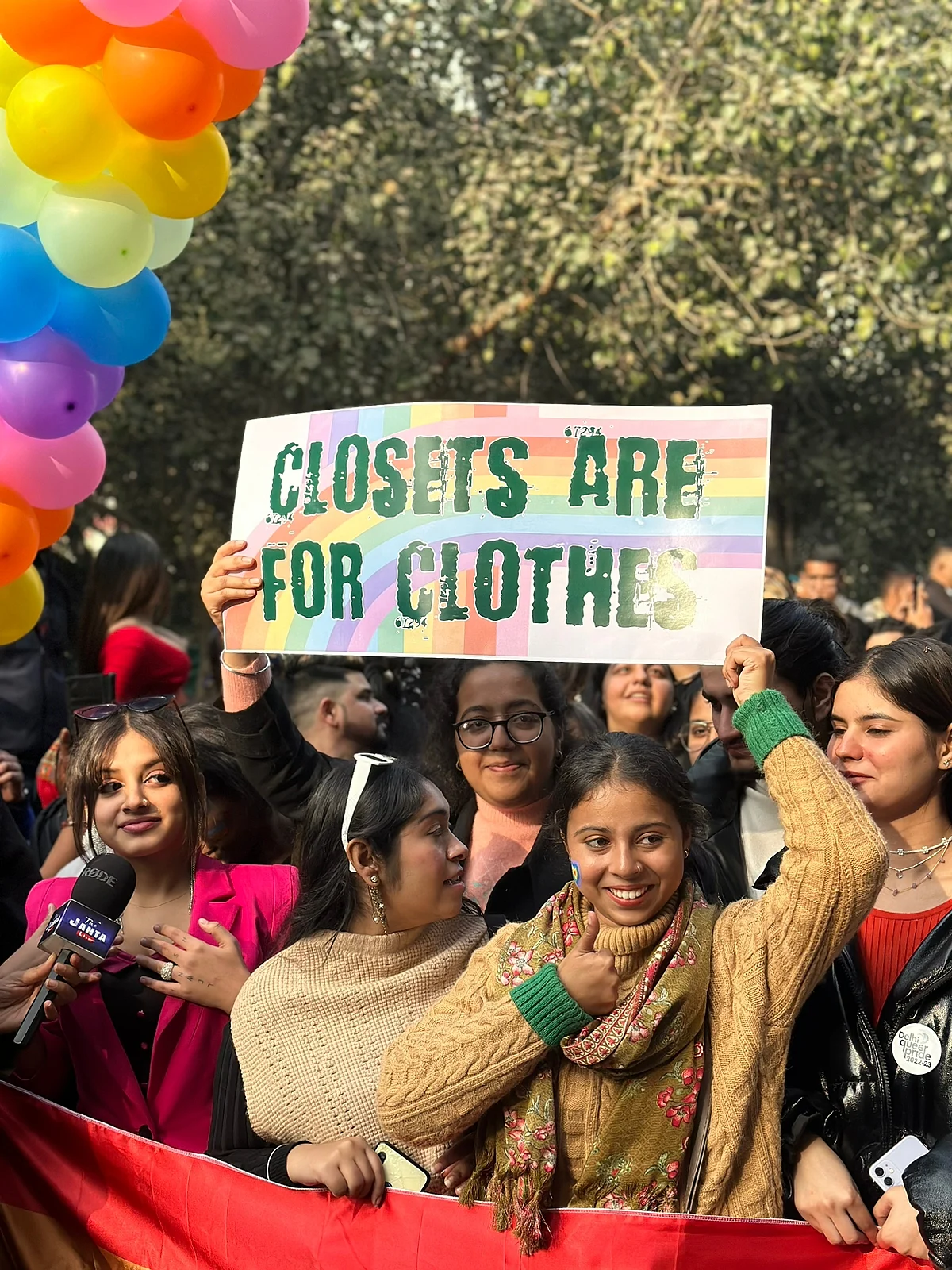
In 2018, when the government of India decriminalised homosexuality, Agarwal said he slowly started opening up to his parents about his identity but even today, he is unsure if he can fully come out of the closet. “Being deaf and belonging to the LGBTQ community is not easy. Our communication is not easy even with those who can hear,” he said.
Jantar Mantar reverberated with the Azadi or freedom anthem. As the volunteers screamed, “Tum bhi maango,” the crowd responded in unison, “Azadi”. Moreover, slogans like “Being queer is okay, being lesbian is okay, being trans is okay, being gay is okay,” were being chanted as the crowd danced and cheered.
Over the years, the pride march has metamorphosed into a massive celebration for queer people in the city challenging homophobic legislation, minority and gender rights, inclusion and empowerment.
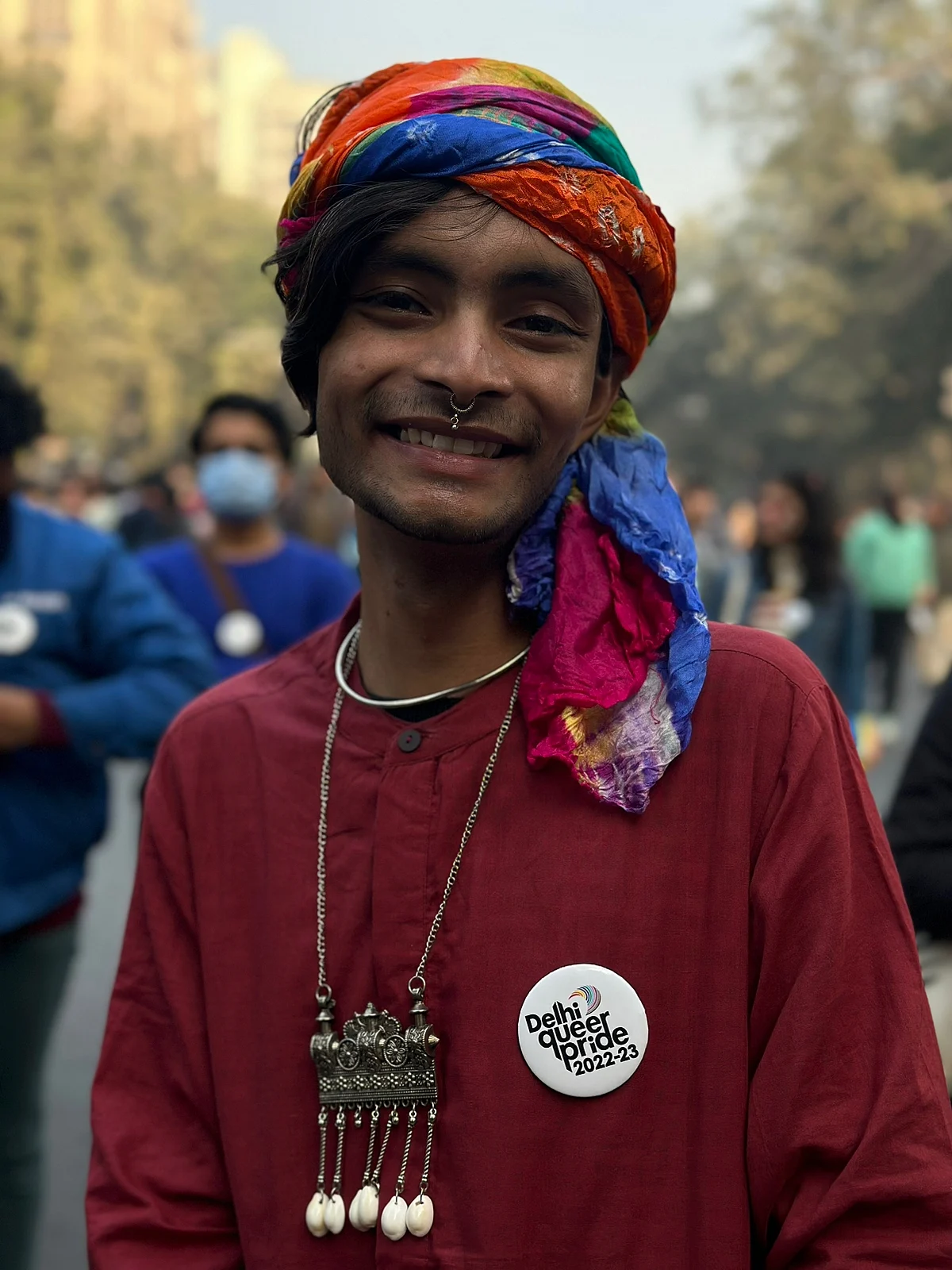
"We have always tried to make sure to have accessibility at pride. For many years we have been having e-rickshaws for people with physical disabilities, elders, injuries or even invisible illnesses, said Shivangi Agrawal, one of the volunteers of Delhi Queer Pride, a group of volunteers who organise the march annually.
"From 2019, we also made sure to have dedicated volunteers from DQP who would ensure accessibility related requests and also if someone needed escorts or support of a volunteer to walk during the pride, specifically for neurodivergent folks or those with mental illnesses."
There is a huge community of disabled queers in India, said Agrawal, who is herself disabled. "Being a queer person with disabilities adds an additional level of discrimination that we have to battle," she said. "Disability inclusion at the pride parade helps people see that queerness is multifaceted and intersectional."
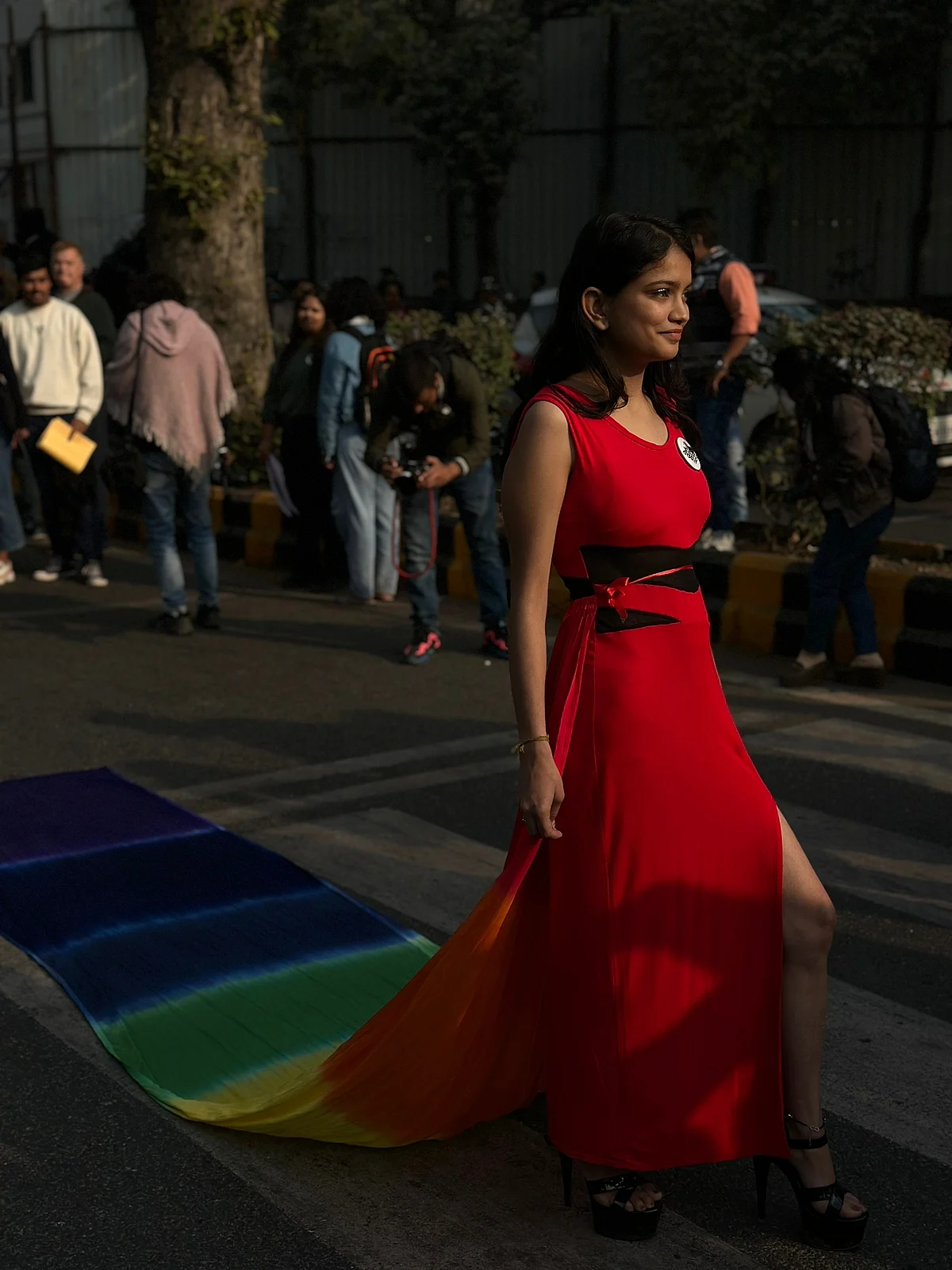
Inclusion of disabled people is absolutely essential and it should not be optional, said Agrawal. "Disabled queer people have always had a voice, we just have not been given a platform, and we have not been heard," she said. "Our identities are not given the opportunity to go on the street, collectivise and protest for our rights in Delhi for too long."
Byong Agarwal stopped to look at the march and after a pause, he said: “I feel free here. I can be who I want to be. I think this is what freedom means. I am finally able to express myself in sign language.”
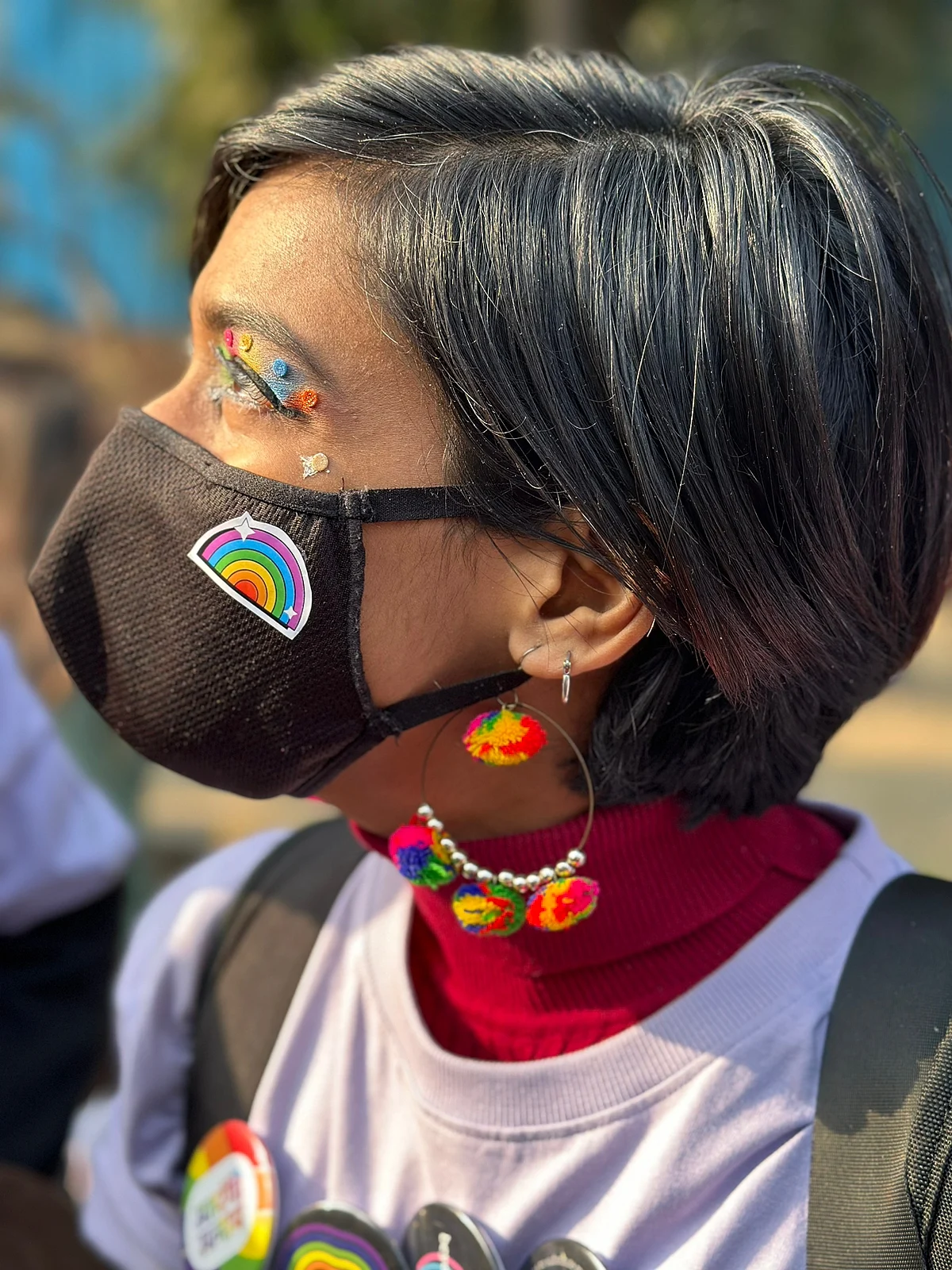
Follow us on: Facebook, Twitter, Google News, Instagram
Join our official telegram channel (@nationalherald) and stay updated with the latest headlines
